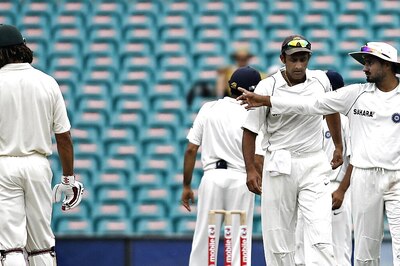
views
New York: Information and communications technologies can be the best guarantee for the empowerment of women and transforming the lives of millions around the world, India told the UN General Assembly here on Friday.
Mayank Joshi, a first secretary at India's UN mission, said the application of the technologies in education, health care, provision of clean drinking water, and energy can empower women and be "force-multipliers in society and bring about structural transformation in the lives of millions of women".
He was speaking at a high-level General Assembly debate on "Advancing Gender Equality and Empowerment of Women and Girls".
"Women are the worst affected by poverty and lack of economic opportunities, and therefore, they should be the first beneficiaries of inclusive development," Joshi said.
"A robust development-centric agenda that reduces poverty, improves education, boosts inclusive economic growth, promotes resilient infrastructure, accelerates access to modern energy, and enables use of information and communication technologies is the best guarantee for women's empowerment."
Joshi highlighted the Beti Bachao Beti Padhao - Save Daughters, Educate Daughters -campaign launched by Prime Minister Narendra Modi in January as the latest of India's efforts to empower women and girls.
The programme aims at improving the child sex ratio through battling selective abortions and by providing incentives for the girl child like a special savings account and access to quality education.
Gender parity had been already achieved in primary education in 2008-09, and it is set to be reached in secondary shortly, Joshi said. Along with these trends, gender bias has also been removed from the curricula and teaching materials.
Earlier, the session heard a moving appeal from a 12-year-old Ecuadorian girl, Nohelia, on behalf of girls everywhere. "If our rights are realised, it would change the world," she told the international leaders.
She sketched a grim picture of the reality for girls in her region that included rape and a dearth of opportunities, which had kept generations mired in poverty. She said it was critical to include their needs in the negotiations and decision-making for the post-2015 development agenda.




















Comments
0 comment